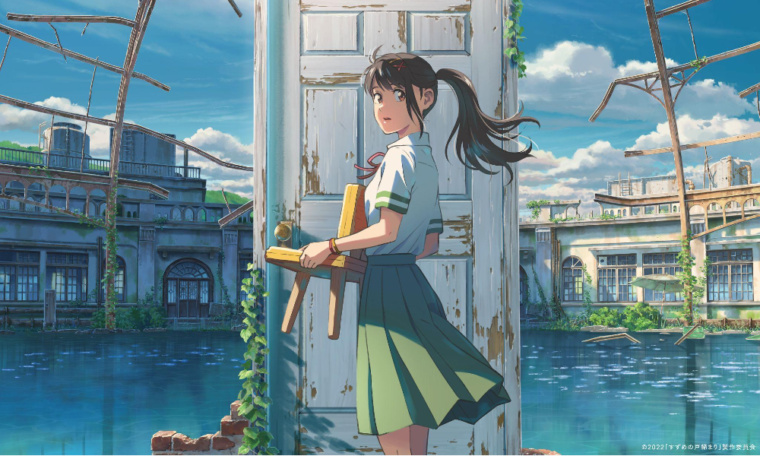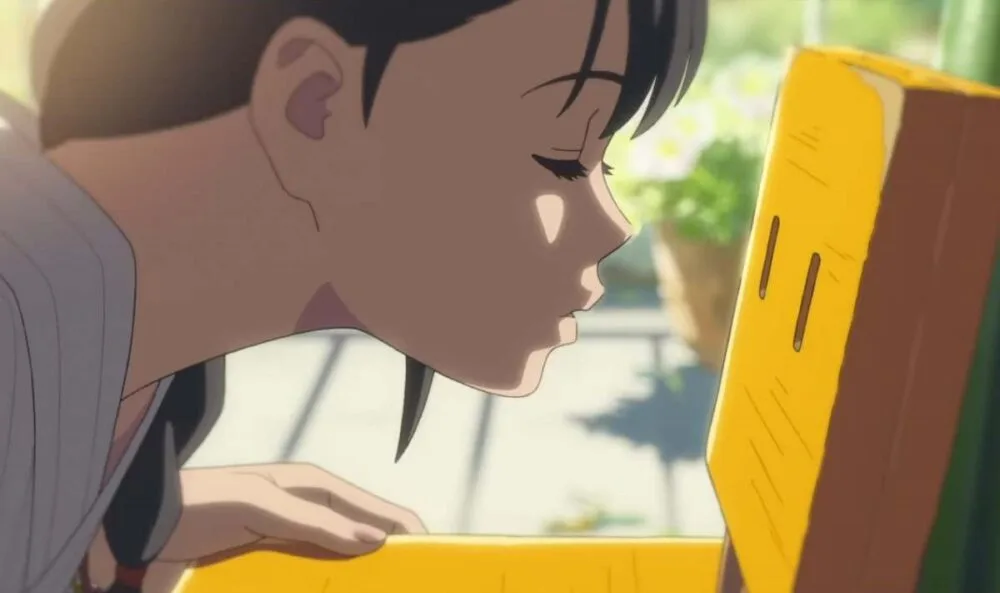When news first leaked about Japanese animation auteur Makoto Shinkai directing a new project, fans were understandably abuzz with anticipation. After delivering worldwide hits Your Name. and Weathering with You, Shinkai’s latest effort Suzume is now playing in U.S. theaters through Crunchyroll, and the response of critics and early audiences shows the anticipation has paid off.
Boasting an impressive 96% Fresh rating on Rotten Tomatoes from 76 reviews (as well as a 99% audience score) and a 75 on Metacritic from 21 reviews, the thrilling PG-rated fantasy adventure is being lauded by critics for its deft handling of weighty emotions as well as its pure visual spectacle, courtesy of Shinkai’s CoMix Wave Films studio.
The story centers on a 17-year-old girl named Suzume (voiced by Superstore‘s Nichole Sakura in the English dub, Nanako Hara in the original Japanese), whose small town life is upended when she encounters a mysterious young man “looking for a door.” When she accidentally opens supernatural doors all over the country and finds her new companion inconveniently transformed into a chair, Suzume must close these portals to save Japan from further disaster.
Here’s what critics are saying:

“Structured as a road movie, Suzume invites audiences on a tour of Japan, bypassing familiar landmarks, like Mount Fuji, to concentrate on places that represent the country’s endangered heritage — each cloud and ruin lovingly rendered to deliver the soul-nourishing charge of a real-world sunset. So, come for Shinkai’s skies, stay for the feels.”
— Peter Debruge, Variety
“Although often funny, a deep sense of loss is baked into the bones of the film by the fact that its title character lost her mother in the 2011 tsunami-earthquake … Suzume, who at first seems like just another standard-issue anime ingenue, grows and becomes more interesting throughout — as does Souta, who is amazingly expressive for a chair, thanks to crack object-animation skills and smart screenwriting.”
— Leslie Felperin, The Hollywood Reporter
“It is an absorbing, intriguing, bewildering work: often spectacular and beautiful, like a sci-fi supernatural disaster movie or an essay on nature and politics, but shot through with distinctive elements of fey and whimsical comedy … Suzume can be read at one level as about the seismic changes of adolescence and adulthood, but isn’t only (or maybe at all) about sex: it’s about status, respect and being seen.”
— Peter Bradshaw, The Guardian

“Suzume doesn’t lean into tragedy as spectacle, however: it is a spiritual journey through the very fabric of a land, anatomizing how we navigate nostalgia for home and grief for lost loved ones … But it’s Kenichi Tsuchiya’s animation direction, which unfolds in jaw-dropping detail, that really makes Suzume a thing of galaxy-brained beauty: not just the stunning night skies of indigo twinkle and flamingo-pink rays, or the richly detailed and varied design of the different cities, but how Suzume connects believably to the audience as a teenage girl in movement and expression, commanding the narrative’s emotional journey.”
— Steph Green, IndieWire
“As in Shinkai’s last film, Weathering With You, Suzume is about young people who’ve inherited responsibility for a crumbling world they have to risk everything to save. But it’s also a tribute to the mundane — to Souta’s cluttered but cozy student apartment, to the ramshackle red convertible his friend Serizawa (Ryunosuke Kamiki) drives, to the red-faced customers at the Kobe bar Suzume ends up spending a night in, to the people jogging alongside the river or making their way home from work at the end of the day. Suzume may be a less effective romance than something like Your Name — it’s tough when half of your main pairing is a piece of furniture — but that’s because its real love story is with the stuff of everyday life, making it almost unbearably inviting and worth fighting for.”
— Alison Willmore, Vulture
“Suzume is Shinkai’s biggest and possibly most complex movie, and parts of it feel more personal due to the invocation of real history, but it’s also a bit overly concerned with its plot—to the point where it seems to take its central relationship for granted. Hey, people want to see a girl and a chair fall in love! Just let them!”
— Sam Barsanti, AV Club











